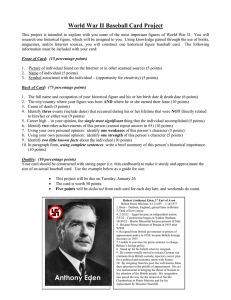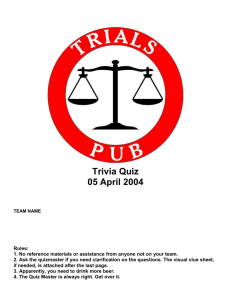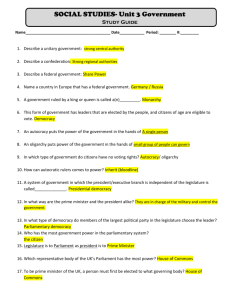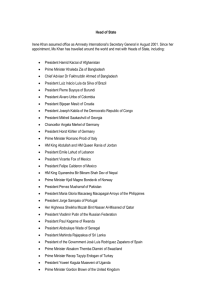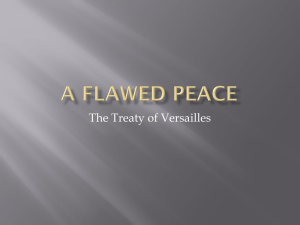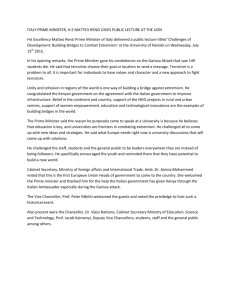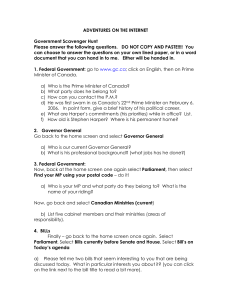Document 11245857
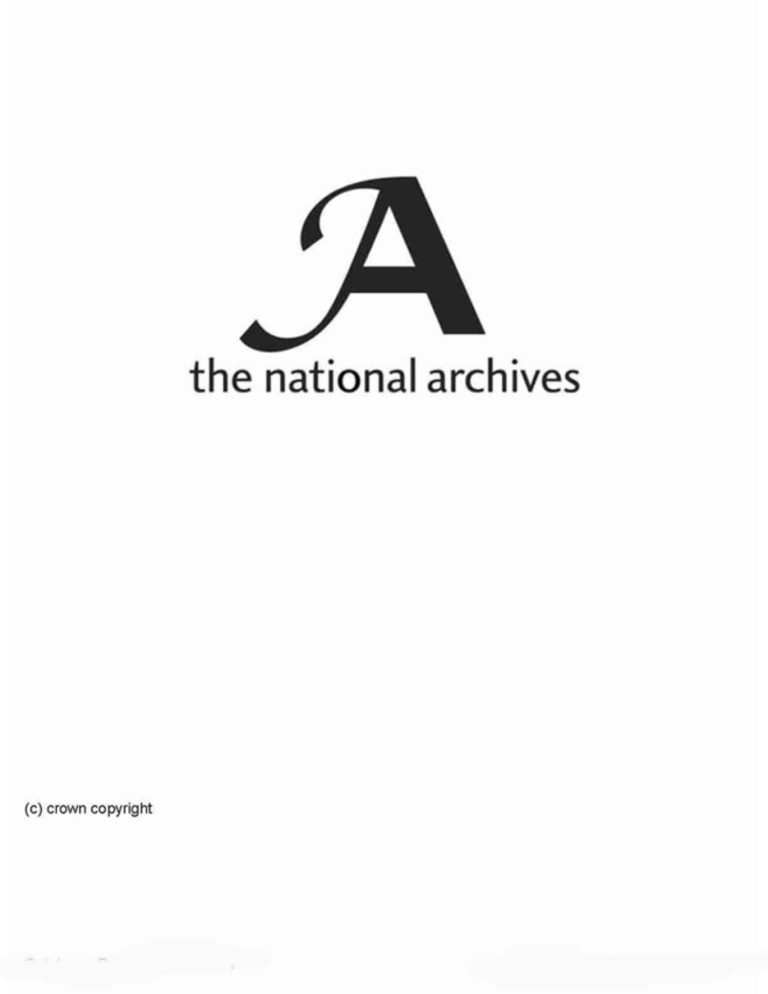
THIS DOCUMENT IS THE PROPERTY OF HIS BRITANNIC MAJESTY'S GOVERNMENT
The circulation of this paper has been strictly limited.
It is issued for the personal use of
Isy^
5
.ecrv
*^cv?^.. lOST SECRET. Copy Wo.
it
V7.Ivi.(.43) 142ND CONCLUSIONS, MINUTE
Conf idgntlal Annex
(lOth October, 1943 r .*o0 p.m
0
)
ANGLO-SOVIET
AMERICAN
CONFERENCE
(Previous
Reference:
W.M.(43) 137th
Conclusions,
Minute 4) .
THE PRIME MINISTER said that Mr. Hull had met
Mr. Eden at Cairo and that it was hoped they would both arrive in Moscow that night.
Mediterranean
Gommiss ion
THE PRIME MINISTER said that the Russians had now demanded that the Mediterranean Commission should be given administrative powers over the Control
(Previous
Reference:
Commission in Italy. This was entirely contrary to what we had said at the time when proposals for the
W.M.(43) 123rd establishment of. a Commission had first been made.
Conclusions, It was clearly out of the question for us, having
Minute 3 ) . regard to the interests of our troops fighting in
Italy, to agree that the powers of control should bo removed from the person of the Commander-in-Chief.
The State Department viewed with favour requests which had been received from the Chinese and Brazilian
Governments to bo represented on the Mediterranean
Commission.. This suggestion however wouldcloarly make the Commission an ineffective body.
Russian Convoys THE PRIME MINISTER said that the War Cabinet had seen the answer received from Premier Stalin in
(Previous reply to his telegram (T. 1464/3) announcing our
Reference: intention to send four convoys to North Russia and
W.M.(43) 48th asking for better treatment for our personnel in
Conclus ions, North Russia. This answer (T. 1625/3) was couched
Minute 2 ) . in an unhelpful and grudging tone and he (the Prime
Minister) had been sorely tempted to send a reply, to the effect that, if the Russians would not mitigate the ill-treatment of our personnel in North Russia,
"we should not send the convoys. But' it was clearly ri&Ir that we should send the convoys, in the interests of the war effort, if we could possibly manage to do so, and he had accordingly asked the Foreign Secretary to handle the matter in Moscow. In the meantime, he had seen the newly appointed Russian Ambassador,
Mr. Gusev, and had handed back to him Premier Stalin's telegram, saying that he was not prepared to receive it and that Mr. Eden would deal with the matter orally in Moscow. (Sec T 1660/3 from the Prime Minister to t the Foreign Secretary).
In further discussion, the Prime Minister said that he thought it would be a great advantage if the Russians delivered their messages in Russian and let us arrange for their translation. He felt sure that the translations made were often very crude and that the tone of the original was often lost in the process of translation.
Offices of the War Cabinet, S.W.1,

